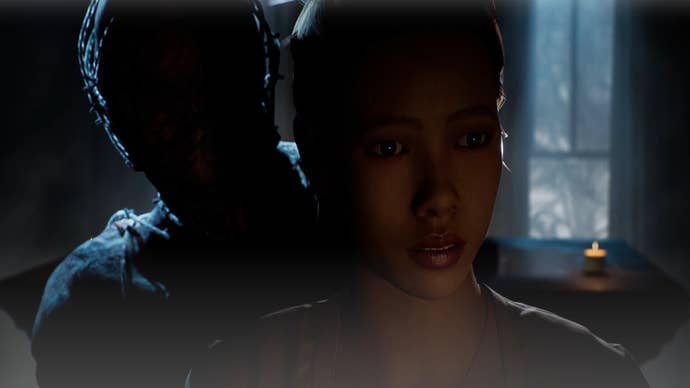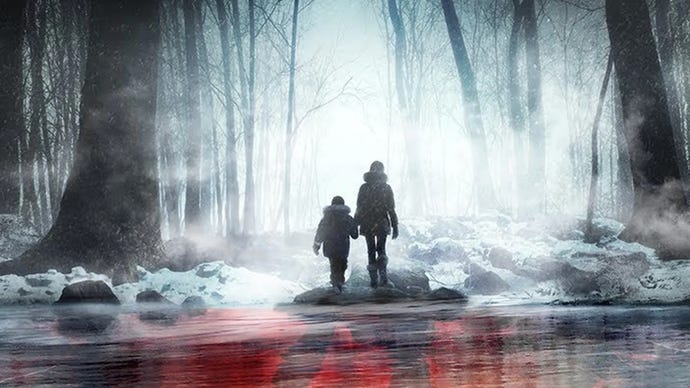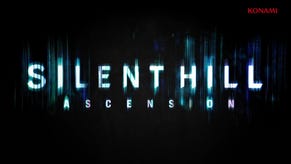Silent Hill: Ascension does not look like the game we’ve been holding out for
Konami has shed a little bit more light on its next Silent Hill game (no, not Silent Hill 2) and it's not whatever you've been hoping for.
Silent Hill: Ascension has revealed a brand new trailer, giving us a look at exactly what this live gameplay experience will entail. And it doesn’t look like the game we’ve been holding out for. For multiple reasons.
The first being that, well, Ascension isn’t going to be a standard game. The PR has been very clear with us about this – Silent Hill: Ascension will take the form of 'an interactive streaming series’ in which the viewers decide the fate of the characters, together, by bidding on them. Per the PR, "no one is playing a character" – so there is no James Sunderland-type agency here. Does this sound eerily like a hobbled version of Supermassive Games’ Until Dawn and The Quarry? Yes.
You’re not wrong for thinking that, either. With some caveats. If someone presented me the trailer for Ascension with no prior context or branding, I would’ve honestly mistaken this trailer for another Supermassive endeavour, perhaps cut through with a little Netflix Bandersnatch. This isn’t a bad thing, considering Supermassive’s titles are equal parts unnerving and fun.
The Silent Hill: Ascension trailer introduces us to multiple main characters; as we see them flee in terror and catch glimpses of horrific monsters, it’s explicit that Ascension will explore their trauma. What happened in these characters’ pasts for them to wind up here? Will they be able to face up to their trauma and escape? Or will they simply pass on their trauma to their children? The trailer raises a lot of questions for players, but cemented one thing for me: this can’t be good.
.jpg?width=690&quality=70&format=jpg&auto=webp)
I’m not denying that the format in which Silent Hill: Ascension is being delivered in will be a fascinating one to see unfold – a 'real time interactive system' for viewers to decide what happens next, playing with format like the Blair Witch of its day. I think the issue here revolves around Konami forgetting what made Silent Hill so special, and simply slapping that branding label on its future games to generate more hype.
The original Silent Hill titles focused on psychological horror, there’s no doubt about that. More specifically, how a character carries their trauma with them, and in what ways it manifests. James Sunderland fought his inner demons in the form of Pyramid Head in Silent Hill 2, for example. Sorry if that one was lost on you.
You could play the entirety of Silent Hill 2 and take it at face value, without even realising that the real horror at play was the unresolved trauma that James was carrying with him. Once you do realise the journey that James is on, Silent Hill 2 suddenly became all the more unnerving – it’s no longer about the physical threats James is facing, but a much more real, personal horror he’s tackling instead. You don't need a therapist to tell you why that, for many people, reaches past the material world and tickles something much more unsettling deep in the amygdala.

Team Silent captured lightning in a bottle with the original Silent Hill trio; it was a period of time in which horror was finding its feet as a genre, and Silent Hill 2 shaped up to be one of the best horror games of all time. There was a level of intrigue and mystery surrounding this nasty little game because of how it managed to get under its player's skin so easily. You can revive a series, and remake a game, but you can’t recreate a moment in time like that. Especially not if you pull up all the subtext in a cinematic trailer like teeth from a jawbone.
Silent Hill: Ascension looks to be an interesting experience to share alongside other Silent Hill fans, but it doesn’t look like Silent Hill. Maybe Bloober Team will blow my mind with the Silent Hill 2 remake, and I’ll eat my words.
But perhaps it's worth considering what would happen if Konami considered starting a new series, rather than slapping the ‘Silent Hill’ seal of approval on a few horror games that focus on trauma. Maybe it'd have another classic property in the making. And maybe it'd stop tarnishing the name of the good that's come before.



